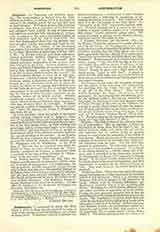

Confessor.—(I) Etymology and primitive meaning.—The word confessor is derived from the Latin confiteri, to confess, to profess, but it is not found in writers of the classical period, having been first used by the Christians. With them it was a title of honor to designate those brave champions of the Faith who had confessed Christ publicly in time of persecution and had been punished with imprisonment, torture, exile, or labor in the mines, remaining faithful in their confession until the end of their lives. The title thus distinguished them from the martyrs, who were so called because they underwent death for the Faith. The first clear evidence of the distinction just spoken of is found in an epitaph which is recorded by De Rossi (Bullettino di archeologia cristiana, 1864, p. 30): “A Domino coronati sunt beati confessors comites martyrum Aurelius Diogenes confessor et Valeria Felicissima vivi in Deo fecerunt” The blessed confessors, companions of the martyrs, have been crowned by the Lord. Aurelius Diogenes, confessor, and Valeria Felicissima, put up (this monument) during their lifetime]. Among writers St. Cyprian is the first in whose works it occurs (Ep. xxxvii): “Is demum confessor illustris et verus est de quo postmodum non erubescit Ecclesia sed gloriatur” (That confessor, indeed, is illustrious and true for whom the Church does not afterwards blush, but of whom she boasts); he shows in the passage that suffering alone for the Faith did not merit the title of confessor unless perseverance to the end had followed. In this meaning the title is of more frequent occurrence in the Christian writers of the fourth century. Sidonius Apollinaris (Carmen xvii), to quote one instance, writes, “Sed confessorem virtutum signa sequuntur” (But signs of power follow the confessor). A similar use may be verified in Lactantius, “De morte persecut.”, xxxv; St. Jerome, Ep. lxxxii, 7; Prudentius.
Later meaning.—After the middle of the fourth century we find confessor used to designate those men of remarkable virtue and knowledge who confessed the Faith of Christ before the world by the practice of the most heroic virtue, by their writings and preachings, and in consequence began to be objects of veneration, and had chapels (martyria) erected in their honor, which in the previous centuries had been the especial privilege of the martyrs. In the Eastern Church the first confessors who received a public cultus were the abbots St. Anthony and St. Hilarion, also St. Philogonus and St. Athanasius. In the West Pope St. Silvester was so venerated even before St. Martin of Tours, as can be shown from the “Kalendarium” published by Fouteau—a document which is certainly of the time of Pope Liberius (cf. “Praenotata” in the aforesaid “Kalendarium”, iv).
Modern meaning.—Since the time when the Roman pontiffs reserved to themselves definite decision in causes of canonization and beatification, the title of confessor (pontiff, non-pontiff, doctor) belongs only to those men who have distinguished themselves by heroic virtue which God has approved by miracles, and who have been solemnly adjudged this title by the Church and proposed by her to the faithful as objects of their veneration.
CAMILLUS BECCARI

